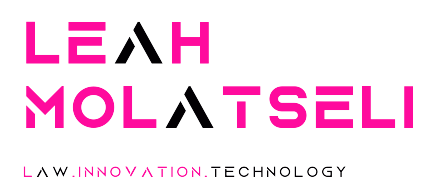
As you continue to do your legal work, deliberating whether you should be engaging AI, the below is a brief differentiation between some of the most popular AI solutions in the legal environment.
Before we get to the differences, below is a brief description of the three below:
- ChatGPT: ChatGPT is an artificial intelligence (AI) chatbot that uses natural language processing to create humanlike conversational dialogue powered by OpenAI.
- Legal GPT:A Legal GPT refers to a version of GPT technology that has been fine-tuned or trained specifically for legal tasks. It is customized with legal data.
- Harvey AI: Harvey builds custom LLMs for elite law firms to tackle the most complex legal challenges across every practice area, jurisdiction and legal system in the world.
The differences between ChatGPT, a Legal GPT, and Harvey AI can be understood in terms of their design, focus, and application in the legal field.
Here’s a breakdown of each:
1. ChatGPT (General-Purpose AI):
-
- Purpose: ChatGPT is a general-purpose AI language model created by OpenAI. It is designed to understand and generate human-like text based on user inputs. It can be used across various industries, including healthcare, customer service, education, and law.
-
- Use Case in Legal: While ChatGPT can be used by legal professionals to draft documents, summarize legal texts, or provide general information, it is not specialized for the legal domain. It requires more specific guidance and prompts to handle legal tasks accurately and does not come pre-trained with legal-specific data or processes.
-
- Customization: Legal professionals may need to fine-tune or adapt ChatGPT for specific legal tasks, making it less efficient for complex legal workflows without additional setup.
2. Legal GPT (Specialized Legal AI):
-
- Purpose: A Legal GPT refers to a version of GPT technology that has been fine-tuned or trained specifically for legal tasks. It is customized with legal data, including case law, legal statutes, and specific terminology, to provide more relevant responses in legal contexts.
-
- Use Case in Legal: Legal GPT is tailored for the legal sector, offering more accurate insights into legal questions, case analysis, and document drafting. It is designed to understand the nuances of legal language, compliance requirements, and legal reasoning.
-
- Customization: Unlike ChatGPT, a Legal GPT comes pre-trained on legal datasets, making it more efficient and accurate for legal professionals. It can handle tasks like contract analysis, case research, and legal argumentation with more precision than a general-purpose model.
3. Harvey AI (Legal-Specific AI Platform):
-
- Purpose: Harvey AI is a platform specifically designed for the legal industry. It is a legal-focused AI built to assist lawyers and legal teams with tasks like legal research, contract drafting, document automation, and compliance.
-
- Use Case in Legal: Harvey AI is pre-configured to perform legal-specific tasks, making it more efficient for lawyers who want AI assistance in their day-to-day work. It integrates with legal databases and case management systems, automating routine tasks like document review, legal research, and drafting.
-
- Customization: Harvey AI is built to be ready for use in the legal sector, with minimal customization required. It understands legal terminology and can be easily integrated into existing legal workflows, providing accurate and efficient support for legal teams.
Key Differences:
| Feature | ChatGPT | Legal GPT | Harvey AI |
|---|---|---|---|
| Target Audience | General-purpose, wide industry application | Legal-specific AI tailored for legal tasks | Lawyers and legal professionals |
| Customization | Requires adaptation for legal use | Pre-trained on legal data, ready for legal tasks | Pre-configured for legal workflows |
| Legal Knowledge Depth | Broad, non-specialized | Specialized in legal concepts and language | Specialized, with built-in legal expertise |
| Workflow Integration | Minimal integration with legal tools | Can be customized to integrate legal tools | Seamless integration with legal systems |
| Efficiency in Legal Tasks | General but flexible for legal use | More accurate and efficient for legal tasks | Highly efficient for legal tasks and automation |
Conclusion:
-
- ChatGPT is versatile but lacks the depth of legal-specific knowledge and requires more customization for legal tasks.
-
- Legal GPT is a specialized AI focused on the legal sector, offering more accurate and relevant results for legal professionals.
-
- Harvey AI goes a step further by being fully configured for the legal industry, offering deeper integration and specialized tools to streamline legal workflows, making it an excellent choice for law firms and in-house teams looking for automation and AI-driven solutions.
Each tool serves a different purpose, with Harvey AI offering the most seamless experience for legal professionals, while ChatGPT provides more flexibility for general tasks, and Legal GPT bridges the gap with a focus on legal-specific capabilities.
So whether you are starting, debating or having budget considerations, hopefully this helps you understand your AI journey in your legal environment.
